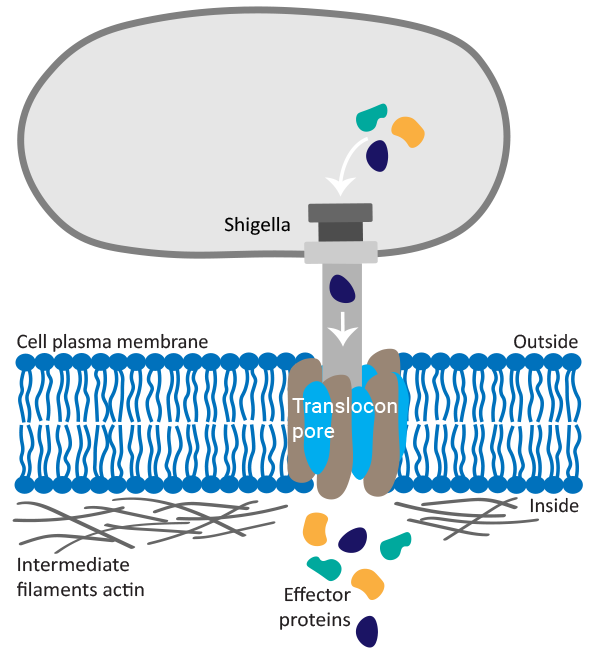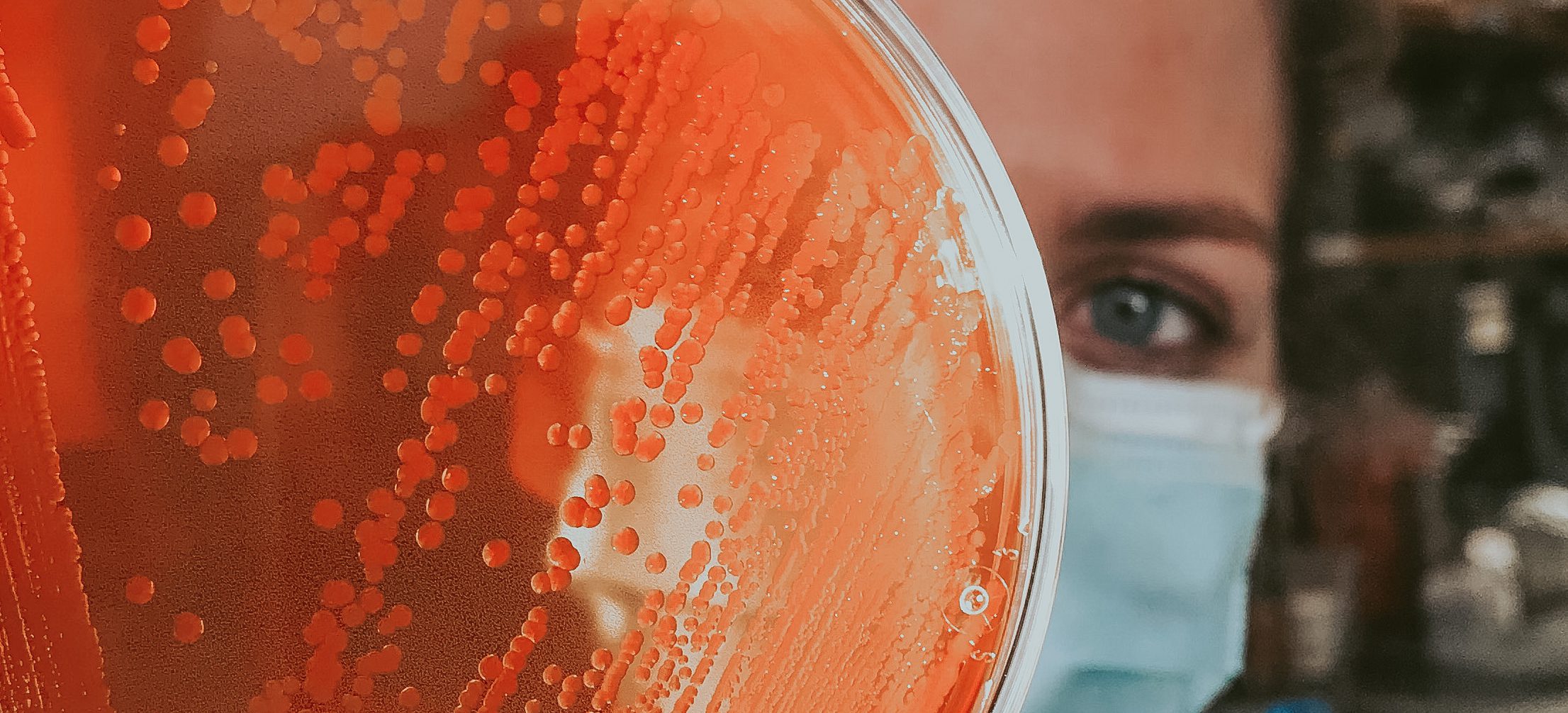Type 3 secretion systems are bacterial nanomachines that deliver virulent effector proteins into eukaryotic cells. More than 30 gram-negative bacteria depend on type 3 secretion system-mediated delivery of proteins to cause disease. In mammals, type 3 secretion systems translocate proteins into cells by forming a translocon pore in the plasma membrane and then transferring proteins from the bacterial cytoplasm through the type 3 secretion needle and the translocon pore. We discovered that activation of secretion and delivery of proteins through the type 3 secretion system depend on specific signals from the host cell, with distinct signals from cellular actin and cellular intermediate filaments. We are dissecting the molecular nature of these and other signals required for delivery of bacterial effector proteins during infection.

